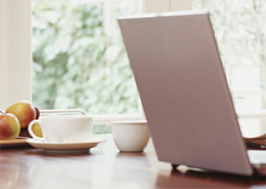
In a recent article, I described how I came back to physical books after an early-adopting adventure of e-reading that turned sour. Writing about it made me realize that many of the products that I’ve been an early adopter of for the past few years have not survived the test of time all that well. I was in line to get the first iPad, I eagerly waited for my Fitbit flex when fitness trackers were just a new fad and I bought a Nespresso machine when the technology was still alien to most. I’ve chosen these three examples because they all ended up the same way… I rarely use my iPad anymore (the improved version bought revision after revision until recently that is) I don’t mind forgetting my Fitbit on its charge (that too got updated a few times) and I mostly went back to brewing my coffee the old way.
Basically, my early adopting heart has been lured back to the way things were way easier than I thought it would. That’s why I’d like to address the pain points that led to failed revolutions in my lifestyle by those products for which I was an early adopter:
1) Lower maintenance is key: No product is maintenance free. Batteries must be charged and machinery must be cleaned, of course. However, for me, a revolutionary new product must be able to claim that it’s lower maintenance than its older counterpart.
- Cup-based machines vs traditional brewers: I didn’t stop making several espressos a day because they didn’t taste good or feel satisfying; I stopped because I disliked the decalcification/cleaning procedure, the cup-recycling hassle and the need to plan deliveries. In comparison, I have to do my groceries no matter what, so I might as well buy a can of coffee and prepare it like I used to for years, throwing the used filters in a flash when I’m done.
2) Higher functionalities are a must: It may be harsh but let’s face it; a new gizmo won’t cause a lasting revolution just because it adds functionalities that we didn’t have and didn’t know we wanted. It has to surpass its predecessors for the revolution to last.
- Tablets vs. Laptops: This might not jibe with some reader’s experience, but I’ve found myself going back to my laptop after indulging in couch-leisured browsing sessions on my tablet for the past few years. Why? Because it happened too often that my tablet felt short on answering my needs. Forms were longer to fill, some websites still have an awful mobile version and for a guy who likes to game from time to time, mobile games just didn’t do the trick anymore. I prefer taking a little more space on my coffee table by leaving my laptop close rather than my tablet.
3) User-Experience must be top notch: Revolutionary gizmos come with a nice sheen of wowness when they first make their appearance on the market. For a time, that comes with an easier satisfaction and more tolerance on my part. I get carried away easily you see, but the thing is, I am not wowed forever and dissatisfaction creeps ever closer as the experience loses its novelty and becomes less enjoyable.
- Fitness tracker vs. nothing at all: If you have ever worn a fitness tracker during a workout session that included your arms and weights, then you know what a great (not) experience that feels like! I love data, especially the one I’ve learned to get acclimated with by wearing a Fitbit all the time. But for something that’s supposed to take its whole meaning through exercise, the fact that it feels in the way almost all the time makes it a bit of a hard sell. Hence why I started leaving the band off for some sessions, not all that worse for wear since the thing helped me identify when I needed to push more or go easier on the reps and sets without needing the data.
With Christmas right behind us, I think I still have time to track down my gift receipts to replace my Wi-Fi connected lightbulbs with candles, get my VR set back to the store to get a NES Classic, get a horse to replace my car while I’m at it and go full retro for a while. 😉

